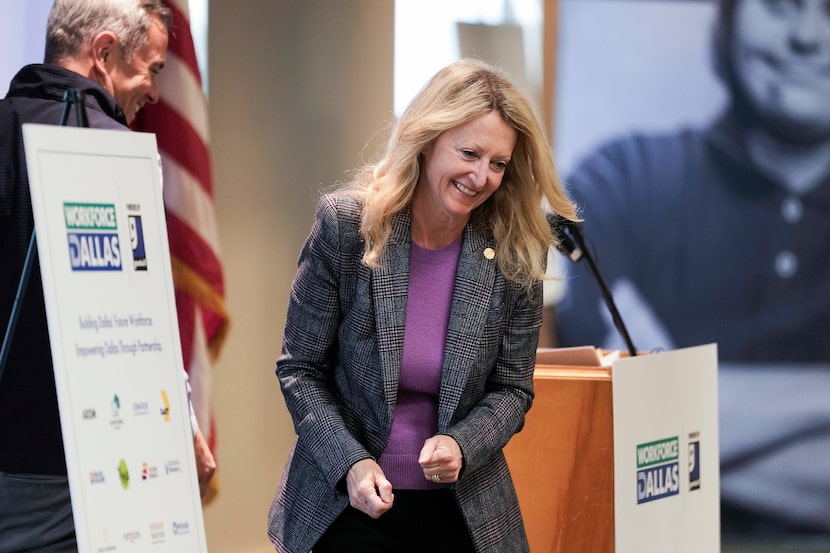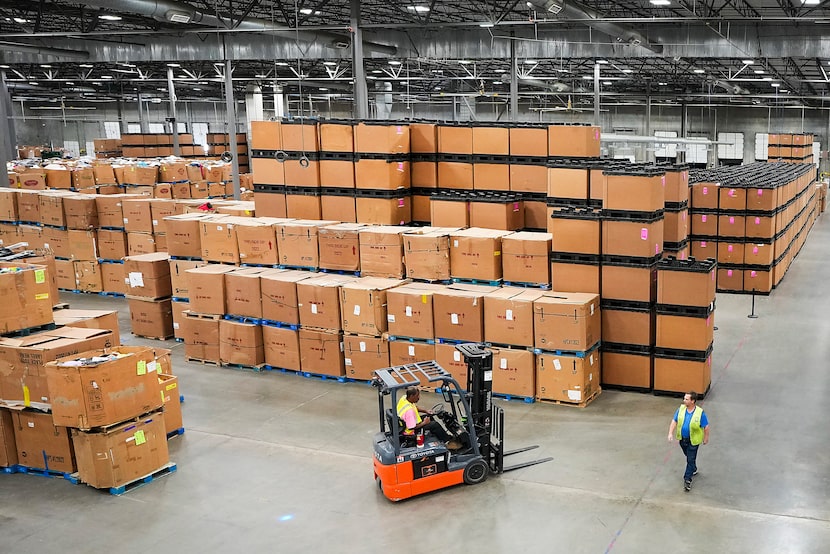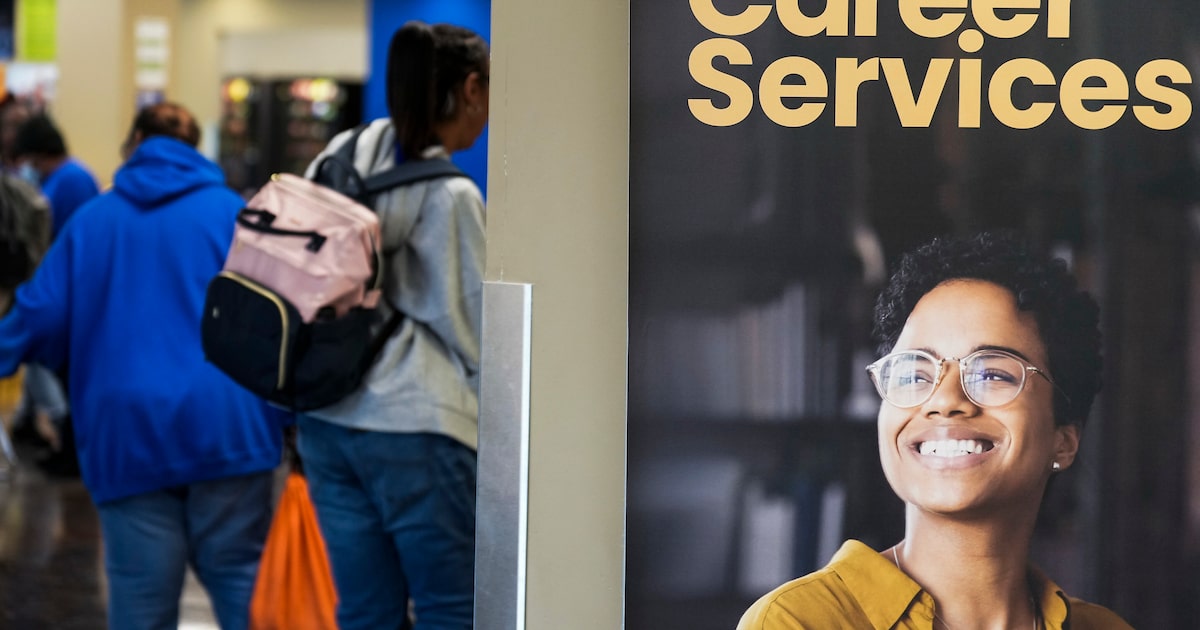The Goodwill Industries of Dallas is launching the second phase of its “Pathways to Placement” program in partnership with the city’s Workforce Dallas initiative to help residents aged 25-64 seeking career opportunities.
On Thursday, the nonprofit’s leaders and Lynn McBee, the city’s workforce czar, kicked off an event celebrating the program at a distribution center in West Dallas.
The program, which builds on an intervention that engaged more than 600 residents, will provide support to individuals entering high-demand fields like logistics and health care. Current certification programs include forklift operation, logistics technician and upcoming health care pathways.

Lynn McBee, workforce development czar for the city of Dallas, trades the podium with Tim Heis, Goodwill Industries of Dallas president and CEO, during an event on the city’s workforce readiness program on Thursday, Oct. 23, 2025, in Dallas.
Smiley N. Pool / Staff Photographer
“What we did in the last two and a half years is we really proved up a model, earning trust in the community, engaging with job seekers, placing people in jobs, and we’ve had success,” McBee told The Dallas Morning News. “But to scale something like this, you need to operationalize it. And Goodwill has been doing work in the adult space.”
Political Points
Texas represents the world’s eighth-largest economy, and as more and more residents move in to the Metroplex in search of high-paying jobs, officials across the city — from nonprofits to the city government — have been looking for ways to also support homegrown talents overcome barriers that range from having fewer opportunities to access credential programs to adequate transportation, housing and childcare.
“Last year, Goodwill Dallas supported 1,600 individuals and placed 505 in jobs, while Workforce Dallas engaged 3,000 job seekers and placed 665,” said Lauren Holloway, Goodwill Dallas’ vice president of Mission and Advancement.
The program aims to serve 2,500 individuals in 2026, with goals of obtaining 80% credential completion and 70% job placement within 60 days of completing the program, Holloway said. Participants are expected to earn an average starting wage of $18 per hour, she said.

Workers are seen in the warehouse at Goodwill Industries on Thursday, Oct. 23, 2025, in Dallas.
Smiley N. Pool / Staff Photographer
Specific health care certifications in development include certified medical assistant, sterile processing technician, and phlebotomist. The program leverages a partnership with Dallas College, which will provide on-site instructors at Goodwill’s West Dallas headquarters, Holloway said.
“For the city and the community, it’s about expanding opportunity, restoring dignity, and strengthening the city that we all call home,” Holloway said. The training will be hosted at Goodwill’s headquarters to reduce transportation barriers and provide comprehensive support, including on-site success coaches who help participants develop soft skills and workplace professionalism.
The program also offers end-to-end support, from initial certification through job placement — along with 30-, 60-, and 90-day employment retention checks.
Tim Heiss, president and CEO of Goodwill Industries of Dallas, said chronic barriers can often come from experiences with homelessness, incarceration or gaps in job history. “Our first promise to people is a fair chance and opportunity,” Heiss said.
Tapping into what Heiss described as a “person-centered” approach, Goodwill’s programs seek to help workers move up with experience and be gainfully employed wherever they go next. He added that the nonprofit reinvests the better part of its proceeds from sales — 89 cents versus two to three cents from for-profit thrift stores — back into workforce development programs.

